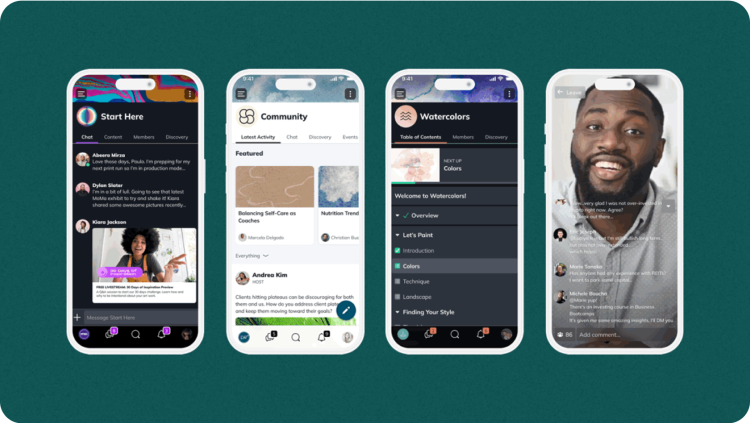Online Courses
The 12 Best Online Teaching Platforms
There are so many online teaching platforms out there. This guide will help you choose the most profitable one for your brand.
Author
Mighty Team
Last Updated
August 14, 2025

People all over the world are embracing the freedom that online teaching and learning offers. In fact, the online teaching market is projected to grow almost 10% a year to $239 billion by 2027.
If you want to join the teaching revolution and earn from what you know, an online teaching platform can get you there. But which one?
In this article, we'll talk through what features to look for and how to compare the best online teaching platforms. We'll cover:
What to look for in an online teaching platform,
The different ways to deliver online learning,
How to add a course business,
And 12 online teaching platforms for every type of educator.
12 Online Teaching Platforms
Here's 12 online teaching platforms for every type of course creator. We go deeper into each option below. Click the entry to learn more about each platform.
Best Features | Use For | Starting From | |
|---|---|---|---|
Live + Recorded Learning, Community Management Software, Custom Spaces | Async and/or Community-Driven Courses + Live Events | $109/mo | |
Custom-Branded Apps, Strategic Support, Community Tools, Ultimate Member Engagement | Branded App-Based Learning | Learn More Here | |
Marketing Automation, Funnels, Async Course Platform | Building and Selling Async Online Courses | $149/mo | |
Interactive Videos, Course Website Builder, Async Courses | Interactive Video-Based Courses | $24/mo | |
Easy Integration w/ WordPress, Built-In Marketing Tools | Integrating Async Courses w/ Existing Sites | $49/mo | |
Massive Marketplace, Broad Student Reach | Maximizing Course Visibility | Udemy Takes Up to 67% of Revenue | |
Cohort-Based Learning, Live Teaching, Group Interaction | Engaging Live Cohorts | Revenue Share Model | |
Creator-Centric, Exposure to Large Student Community | Creative Skills and Personal Development | Skillshare Pays Some Revenue to Creators | |
Simple Course Creation, Websites, AI Evaluations | Async Courses + Websites | $59/mo + 5% Fees | |
Built for WordPress, Gutenberg Style Course Builder | WordPress-Integrated Courses | $199/yr | |
Subscription Services, Integrated w/ WordPress | Memberships and Courses on WordPress | Free + 10% Transaction Fee | |
Integrated Website Building, Email Marketing, and Course Hosting | All-in-One Platform for Creators | $39/mo + 5% Fees |
What is an online teaching platform?
An online teaching platform is software that allows creators to build, deliver, and teach online courses in one place. Online teaching platforms bring together course creation features with user management tools to facilitate educational content.
What to look for in online teaching platforms
Each online teaching platform comes with a different set of tools. As you explore possibilities, ask yourself these questions:
Can I deliver the content I want? There are so many ways to create learning experiences. Your online teaching platform needs to match your style--probably with content tools for sharing video, audio, text, PDFs, and other types of content.
Can I get engagement? Engaged students learn better. Asynchronous courses are still a thing, but more online education includes things like livestreaming, discussion forums, communities, virtual events, chat & messaging, and more. Learning is evolving and optimizing for engagement creates awesome experiences.
Can I manage members? This means knowing who's in the course and what access they have, managing plans, and messaging members. But more and more, it also means connecting members to each other in a community. And, if you want an online teaching business, you need member management for this too.
Can I market and sell my course? For an online teaching business, you may also consider sales and marketing features to get in front of potential students.
Can I customize and brand it? Some platforms let you build under your own brand, adding in your own logo, colors, and style, or building under your URL. Some even have the option for an app under your own brand. Depending on what you value, this might be a consideration.
Can students access my course? Can members use your course on any platform they like? Will it be hard to access? Online teaching platforms should have different ways for members to learn, including an app.
More online teaching platform questions
Each of the questions above is important. But let's go deeper on a few of these to make sure you're choosing the right online teaching platform. Here are a few more things to think about.
Hosted vs. marketplace
A hosted online teaching platform gives you all the tools you need to build, teach, and monetize your online course. The platform will handle the backend maintenance to keep your course up and running so you can focus on your members and content.
So basically, a hosted platform feels like you own it.
You usually pay a flat fee for the software, but you keep all the money you earn from course sales. And you get more control over branding, and you can teach anything you want in any way (as long as the software can handle it).
Most importantly, you OWN the relationship with your students. YOU can email them. YOU can message them. The platform is a tool you use to build YOUR business.
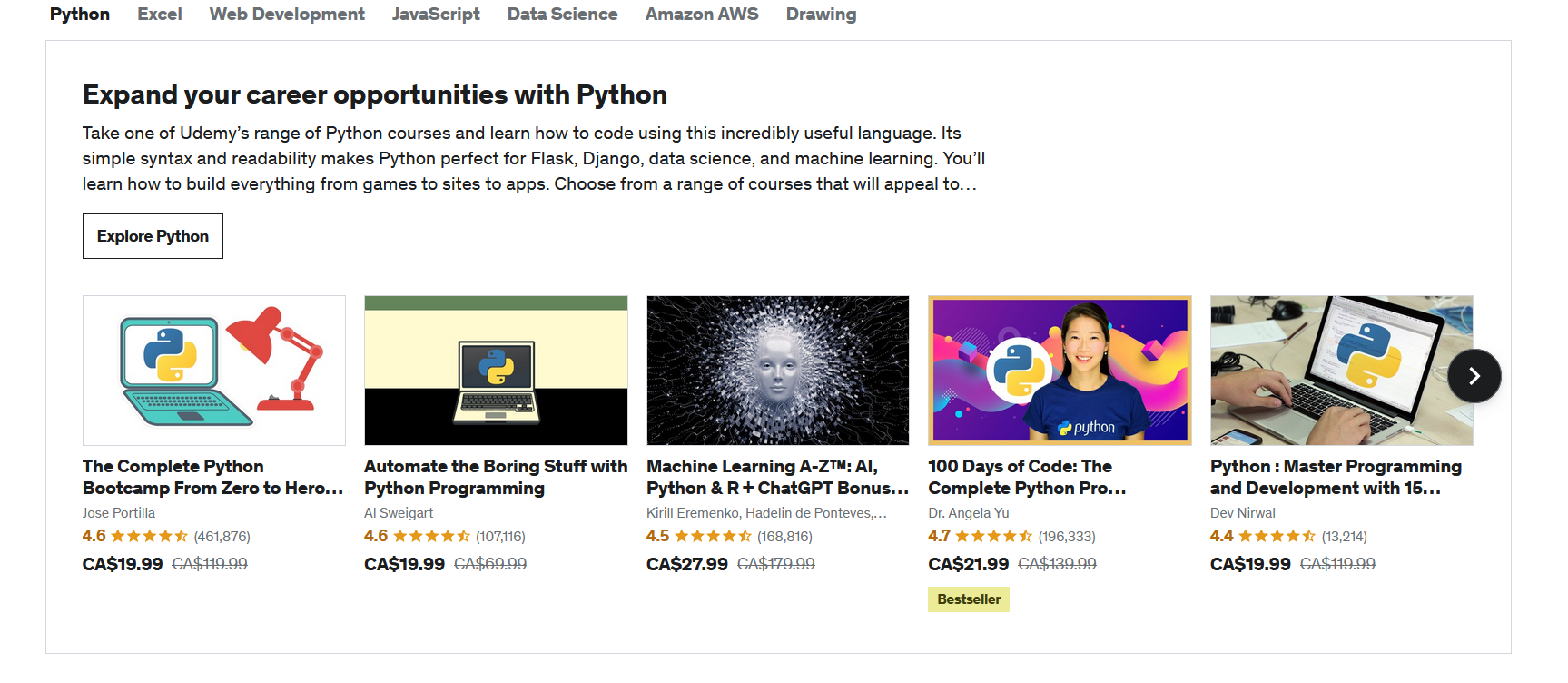
On the flip side, a marketplace platform offers a similar experience in that you can build, deliver, and monetize your online course with the service.
But the difference is, you don't have control over a marketplace platform. You don't get the same kind of ownership over your relationship with your students. Instead, you are basically a content creator and the platform you build on takes a cut of anything you earn.
The advantage to a marketplace platform is that usually they have thousands or millions of students looking for courses. This could mean less work to market your courses.
But there's lots of competition too, so you'll need to find ways to get seen by students no matter your choice.
Here are the pros for each of these.
Pros of a hosted platform:
Own your space and your brand.
Deliver the course in the way you want.
You're building YOUR member base (not someone else's).
You keep all the money you earn.
Pros of a marketplace platform
It can be less work to set up.
You can get course members you wouldn't have had otherwise because of the existing member base (e.g. people searching the database).
The marketplace platform takes care of everything--usually it's a light lift for the people teaching courses online.
What's your teaching style?
The original online course platforms were built for text and pre-recorded courses. This was Asynchronous learning: you could upload course text, or even a course video, and members could watch at their leisure.
But now, there are different ways to teach courses. Here are a two of the most common:
Cohort courses: Cohort learning brings live learning to a course, usually using a livestreaming feature on a course platform. It's fun, engaging, and your course members get to learn live alongside other passionate people. And teaching live can be a competitive edge for you as an instructor.
Integrating community: Integrating courses and communities mean you can boost engagement--even if you use an asynchronous teaching model. Traditionally, asynchronous courses meant the students struggled to stay committed. But adding on community features can create the important feeling of encouragement and accountability as your course progresses.
These are two common ways to teach, but they aren't the only ones. Virtual events and conferences are learning experiences. Chats and challenges can be used for amazing teaching moments.
Online teaching platforms should give you the option to create different kinds of courses, or should at least reflect the kind of course you want to teach.
At the end of the day, a platform is the tool in the hands of a great teacher. It's the means, not the end.
If you want to figure out whether asynchronous or synchronous is right for you, here's a quick chart to consult:
If Yes... | If No... | |
|---|---|---|
Are your students self-directed and autonomous? | Try Asynchronous | Try Synchronous |
Does your material ever change? | Try Synchronous | Try Asynchronous |
Do students require live feedback and support? | Try Synchronous | Try Asynchronous |
Do your students have limitations in joining through a live session, either because of learning style or lifestyle? | Try Asynchronous | Try Synchronous |
Will the students need to workshop ideas, have discussions, or work together? | Try Asynchronous | Try Synchronous |
Are you running a course business?
The things you need in an online teaching platform can change a lot between free courses and paid courses.
Those running a teaching business will need payment infrastructure, landing pages, sales features, marketing options, point of sale, currency options, the ability to create bundles, and other member management tools.
And there's no need to try to mix and match software or build a "tech stack" to get these. Several of the options on this list have these features built-in.
You'll need to decide which are the important tools for your online teaching business.
What does your Ideal Member need?
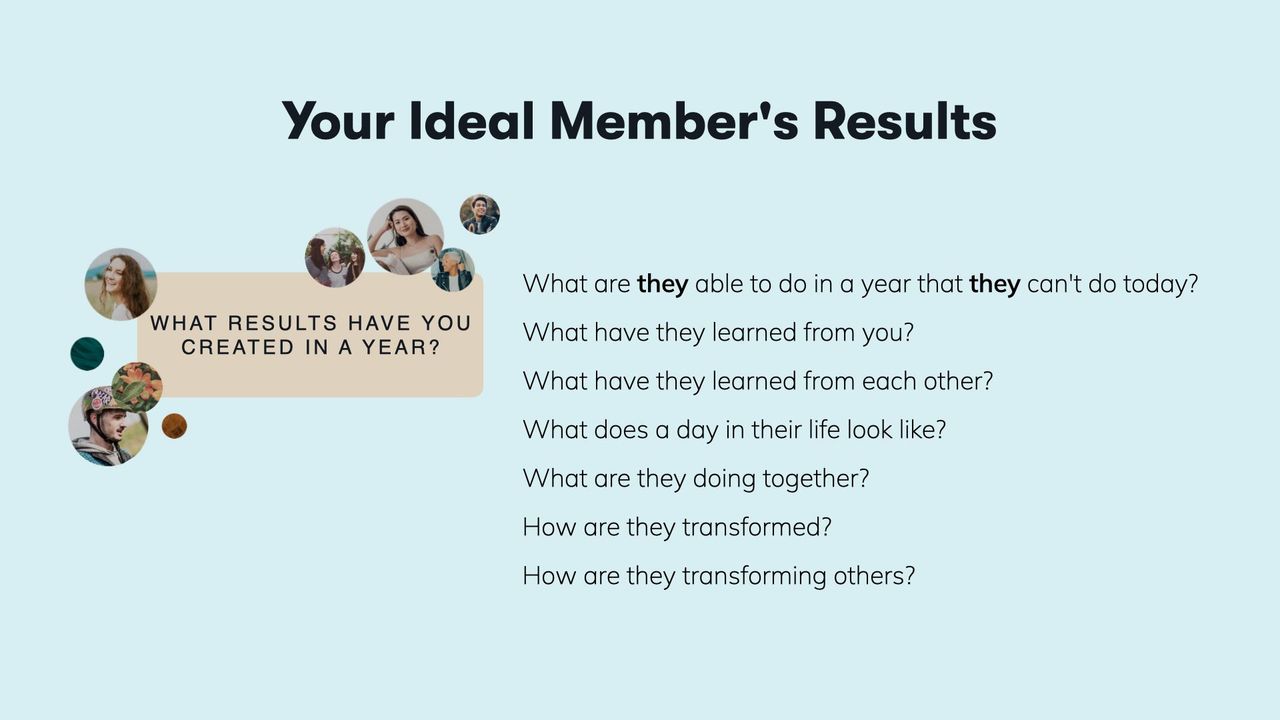
When building courses and community, we talk about Ideal Students and Ideal Members. These are the people who most need the transformation your course offers.
Before setting out to build a course, we love to do the work to figure out WHO it's for. Who would most benefit from it?
Try interviewing 15 or 20 people who are your Ideal Students to find out their pain points and what their goals would be taking an online course.
But then, make sure your teaching platform lets you deliver the transformation your Ideal Student needs. That's the most important thing.
For example, if you find out most of your Ideal Students are busy professionals trying to take your course on the train to work, you might need an app.
If your Ideal Student struggles to stay committed, maybe a community would help.
Try to align your platform with Ideal Student goals.
Can your Ideal Student access your course how they want to?
This is quickly becoming a way to judge the best online teaching platforms: are they investing in apps? A lot of legacy platforms haven't made apps a priority, and it's hurting their reputation.
The best course platforms should give your members the ability to access a course from anywhere on any device.
12 Best online teaching platforms
1. Mighty Networks
Best online teaching platform for engaging courses.
With a Mighty Network, online teaching happens in flexible Spaces that can hold different features: An LMS (aka a course table of contents); Member Explorer; Chat, Discovery Feed, Pages, Events and Livestreaming, or Hashtags.
This means you can build almost any learning experience you can imagine, or choose from Space templates designed for certain uses.
It's a powerful tool for any creator.
Content-only courses

Mighty works great for a traditional online course, in which students can follow pre-set lessons built with videos, text, images, or downloads. You can drip content, add assessments, and get valuable analytics to help you understand what worked and what didn't.
Live (cohort) courses

Of course, you can also use the event features and built-in livestreaming to teach live courses. This includes up to 9 speakers on screen, running chats, RSVPs, and recording downloads after.
Built to connect members
For courses and communities, Mighty is the only online teaching platform with software designed to introduce members to each other--these are features that skyrocket student engagement.
Members are prompted to build profiles (they can use the profile generator if they need help). Once they do, the people explorer is an interactive member database that surfaces the most interesting people, suggesting connections by activity, geography, and interests.
From here, the software will show similarities and even start a chat.
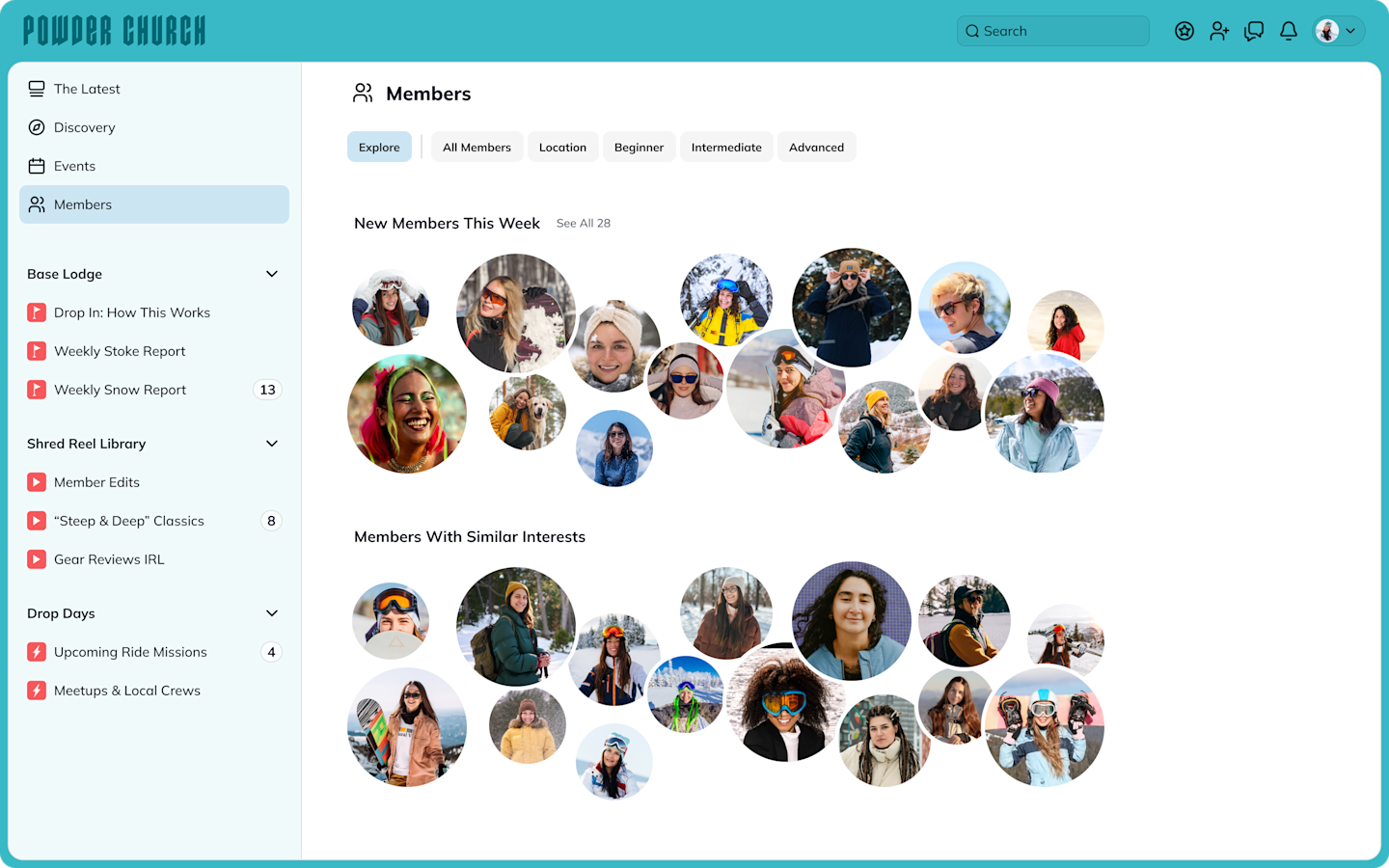
These are best-in-class community features that add up to incredible engagement.
When you can mix a course with G2's top-rated community platform, you've got a lot to work with.
AI tools to boost creativity, not replace it
Mighty has added a suite of AI tools that help course instructors automate some of the admin tasks and boost creativity. This includes:
AI set-up for your course or community
A course outline generator
AI member connection tools (we talked about above)
The Infinite Question Engine to spark discussion
Writing assistance tools to suggest text improvements and add video captions and hashtags
Branding and business tools
Your online course will have your personal branding across everything and will be available on web, iOS, and Android apps.
As you continue to offer courses, detailed analytics shows you what's working and what isn't.
You can monetize your course in 135 different currencies or even with token-gating. And you can bundle your course with anything, from live events to programs to private coaching to communities(https://www.mightynetworks.com/importance-of-community-in-online-courses), and more.
Finally, Mighty's ConvertKit integration means you can connect your online teaching to one of the best email platforms on the market.
When you build a course on with Mighty Network's online course builder, you get a platform that can do pretty much anything you can imagine, without needing to mix in other software.
Mighty Networks Features
Awesome course platform to teach asynchronous or synchronous
Integrated with G2's top-rated community platform
A full set of member-management tools
Beautiful native apps for every device
Built-in ConvertKit integration
2. Mighty Pro
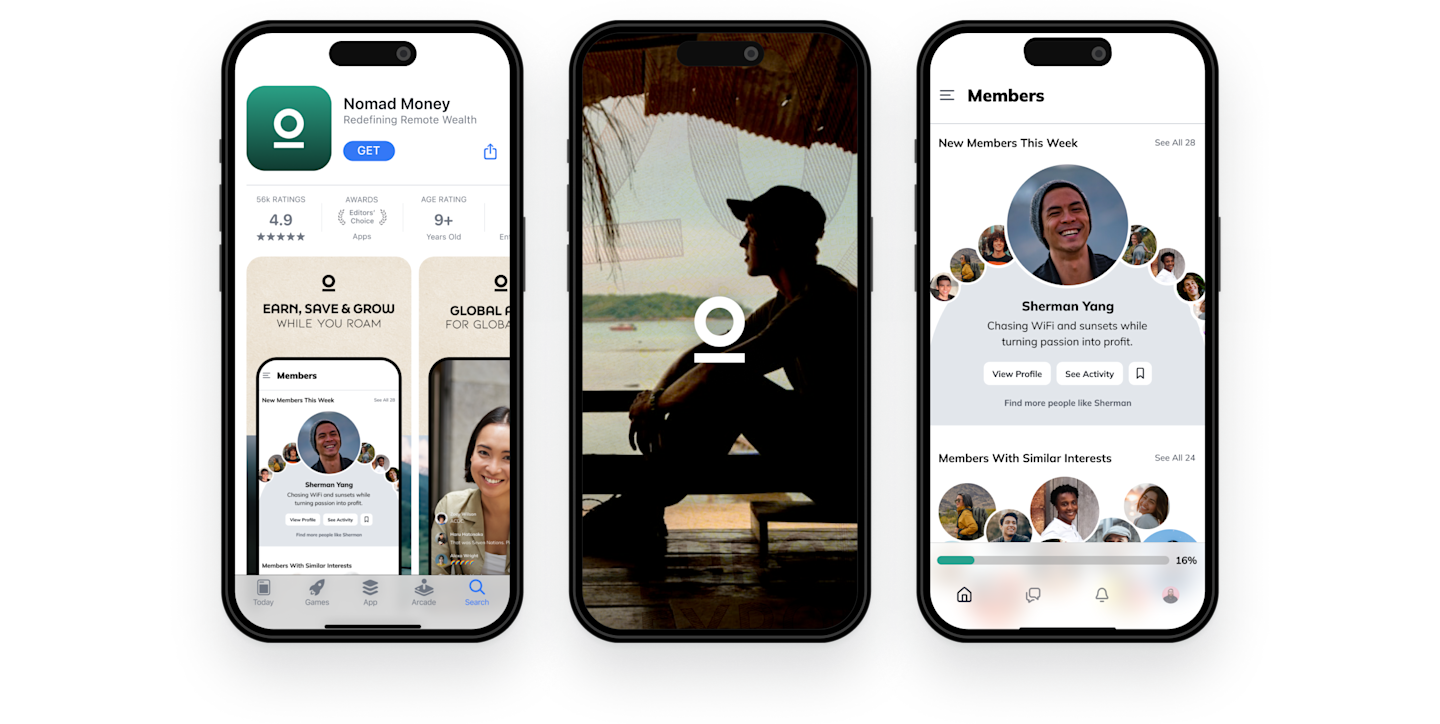
Mighty Pro has launched 400+ branded online teaching apps since 2017, hosting brands and creators like Mel Robbins, Tony Robbins, Marie Forleo, TED, Jim Kwik, Matthew Hussey, BODi, and Keap.
The result is incredible, rich learning experiences on YOUR white-label mobile app in the App Store and Google Play Store.

This means your app under your brand icon with branded push notifications, branded livestreaming, events, and more.
Best of all, you can launch your branded community app in as little as three weeks! It’s much faster and more economical than custom development.
You can get Mighty Pro one of 2 ways:
"Do it with you" is your branded teaching app with design and branding support.
"Do it for you" adds wrap-around service and a dedicated strategist.
Mighty Pro Pros
Branded course app
Mighty's top-rated community features
Includes building and proactive updates, splash screens, and App Store & Play Store submissions
Work with the Mighty Pro team
Mighty Pro Cons
It's for established brands and teachers. If you're just starting out, try Mighty Networks first (you can always upgrade later).
3. Kajabi
Great teaching platform for marketing asynchronous courses
Kajabi is one of the best online teaching platforms for pre-recorded courses and marketing automations. Kajabi comes with a solid course builder for delivering material. Course creators can add videos, assignments, or drip content--making it possible to deliver pre-set packages (e.g. online coaching).
And Kajabi is probably best known for its extensive marketing features for selling a course. Kajabi gives you marketing automations and funnels, with different blueprints to choose from. Build opt-ins, landing and sales pages, and even run your email.
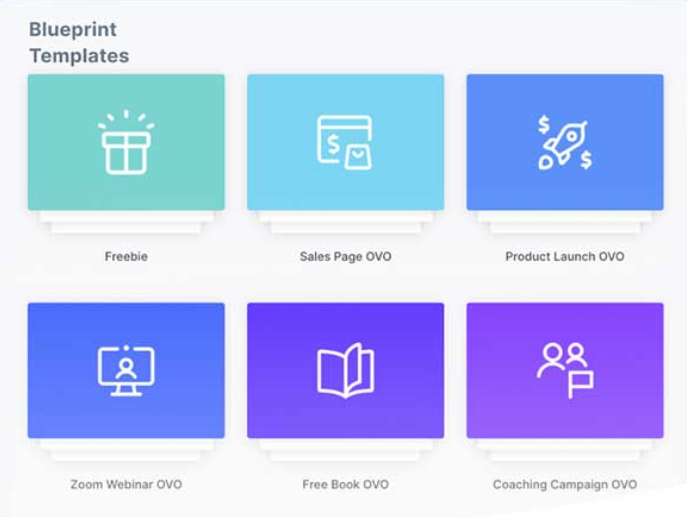
Kajabi also has a good page builder to customize course pages and web-pages, with drag-and-drop editing and different features and templates to choose from.
One other feature of note is Kajabi's AI features, which can help with content creation, course outlines, and marketing copy.
Without a doubt, Kajabi is one of the best online teaching platforms for traditional, pre-recorded courses.
However, for live, cohort courses or community courses, it struggles a bit. Kajabi traditionally had a basic forum function for building course "communities" that was notoriously bad. And the member tools are also quite basic.

Kajabi recently acquired the company Vibely to help fill out some of their online community and engagement offerings.
The good news is that this brings more robust community features to Kajabi: video meetings, livestreaming, newsfeeds, and challenges.
The downside is that Kajabi added their branding to a different platform--rather than building community into their existing platform.

Here's what this means if you want to teach a live course. Your audience would have:
Two separate logins
And no integration between live and pre-recorded content
The Kajabi course and community features even require two different apps. (Kajabi recently announced a new branded app feature which means enterprise customers can have courses and community in the same place.)
However, Kajabi's solid asynchronous platform with awesome marketing tools earns it a spot near the top of this list.
Kajabi Pros
Excellent course platform for pre-recorded courses
Solid marketing, funnel, and sales features built-in
Integrate email
Good mobile apps
Kajabi Cons
Livestreaming and community features are a separate platform (bad for UX)
Users need different apps for courses and engagement features
Expensive
4. LearnWorlds
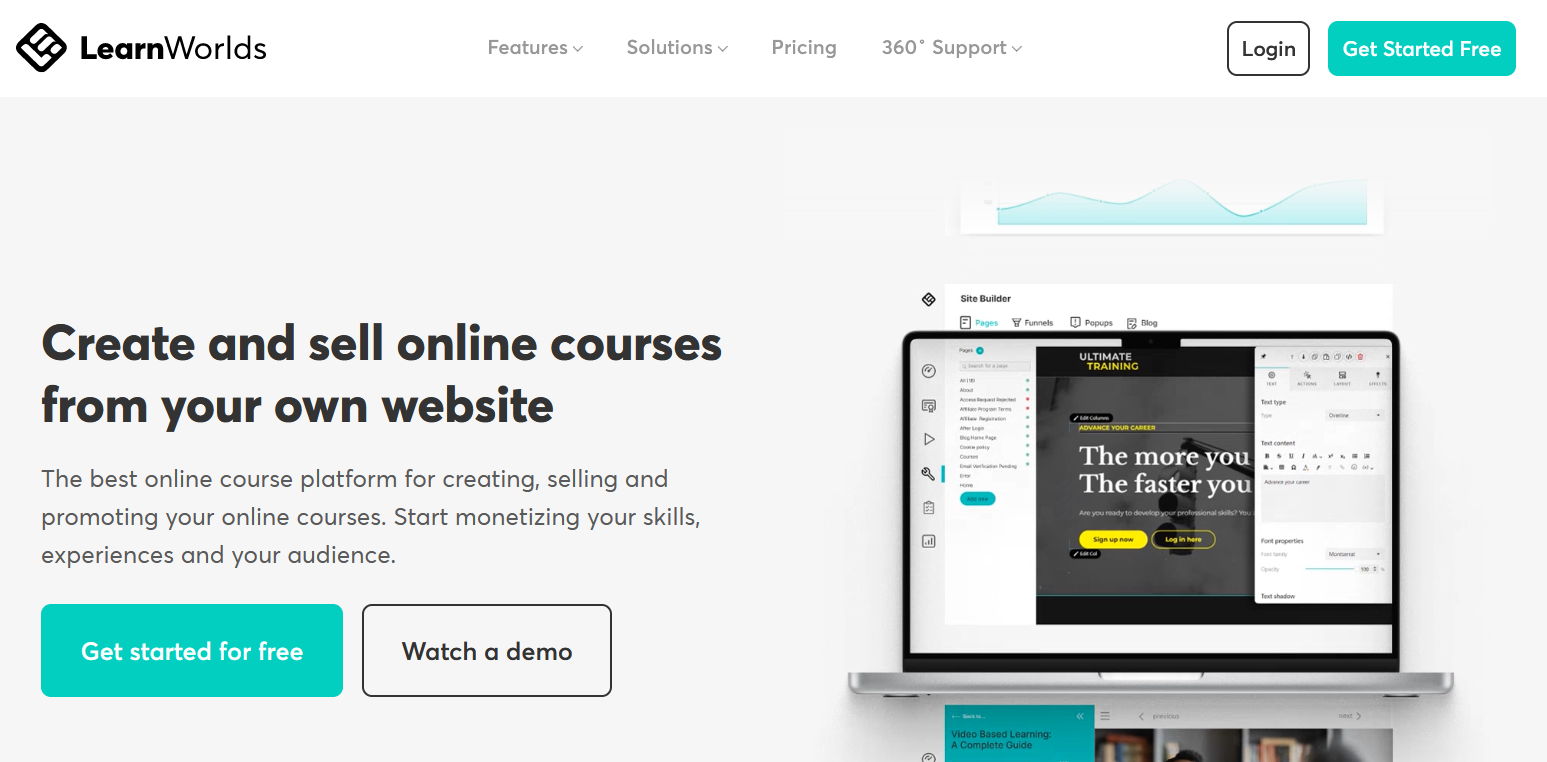
LearnWorlds is a fairly new online teaching platform, but it's quickly making a name for itself as a good Kajabi alternative for async courses--although it also has a cohort option.
It also has a website builder for online teaching, plus a SCORM-compliant LMS that could work well for institutional teaching. It comes with sales funnels, basic email marketing, and affiliate programs.
Note that LearnWorlds doesn't have the engagement and community tools of a Mighty Network, so it isn't as strong for creating synchronous learning experiences, community connections, or live events.
LearnWorld Pros
Good SCORM compliant course builder
Strong for async courses (but can do live too)
Website builder
Built-in funnels and email marketing
LearnWorld Cons
Very simple community features
No real engagement tools for live learning.
The built-in marketing and email features are really basic
5. Thinkific
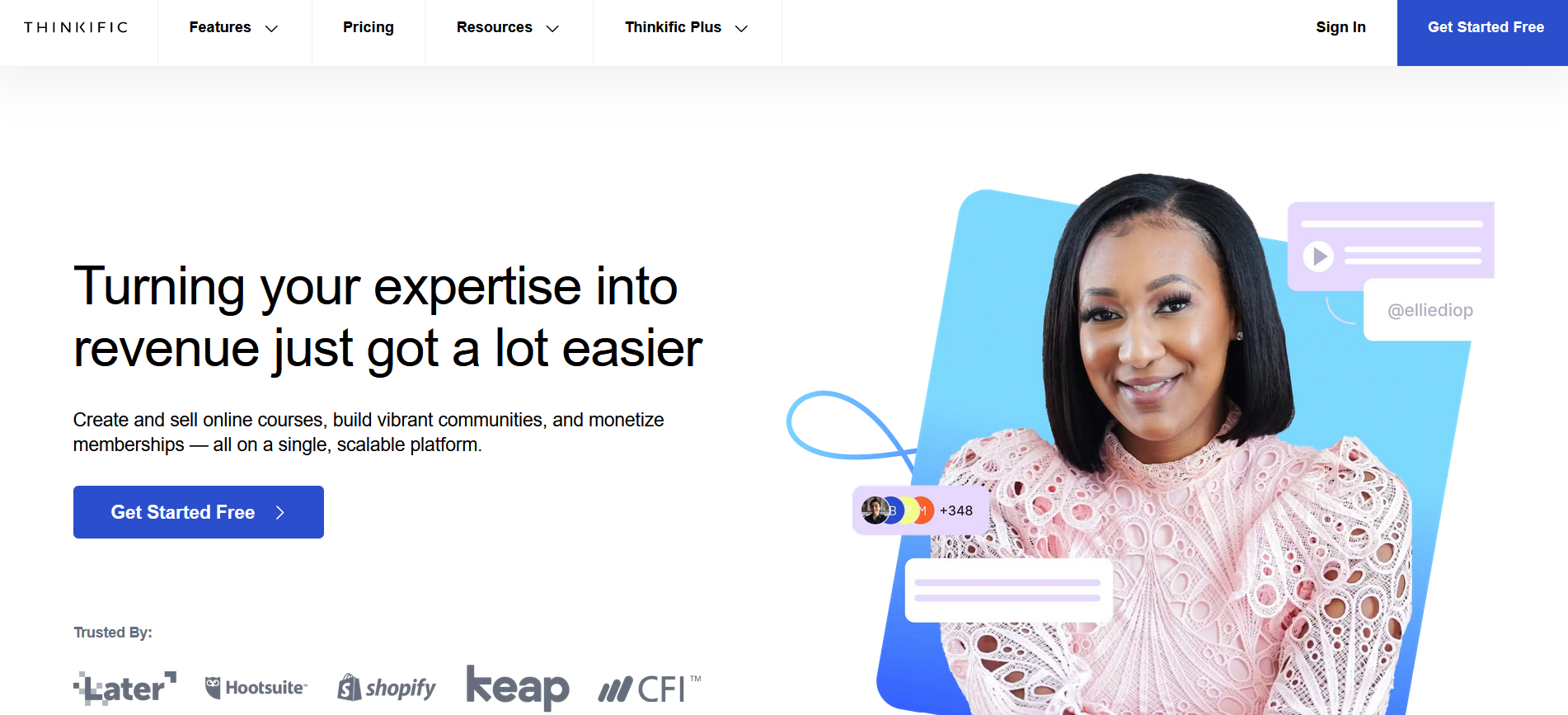
Thinkific is a good online teaching platform that specializes in pre-recorded courses with a strong set of course presentation features. It comes with a drag-and-drop course editor, multimedia lesson options, and a good set of assessment features: quizzes, assignments, exams, and certificates.
Thinkific also has a lot of integrations in its "app store" to mix your online teaching with a bunch of other features.
Thinkific comes with website-building tools and marketing options, giving you the tools to sell your courses.
And it's adding some community and engagement features, making live courses and community possible. However, the community feature is basically a forum; it's missing custom activity feeds, native livestreaming, and other essential community features.
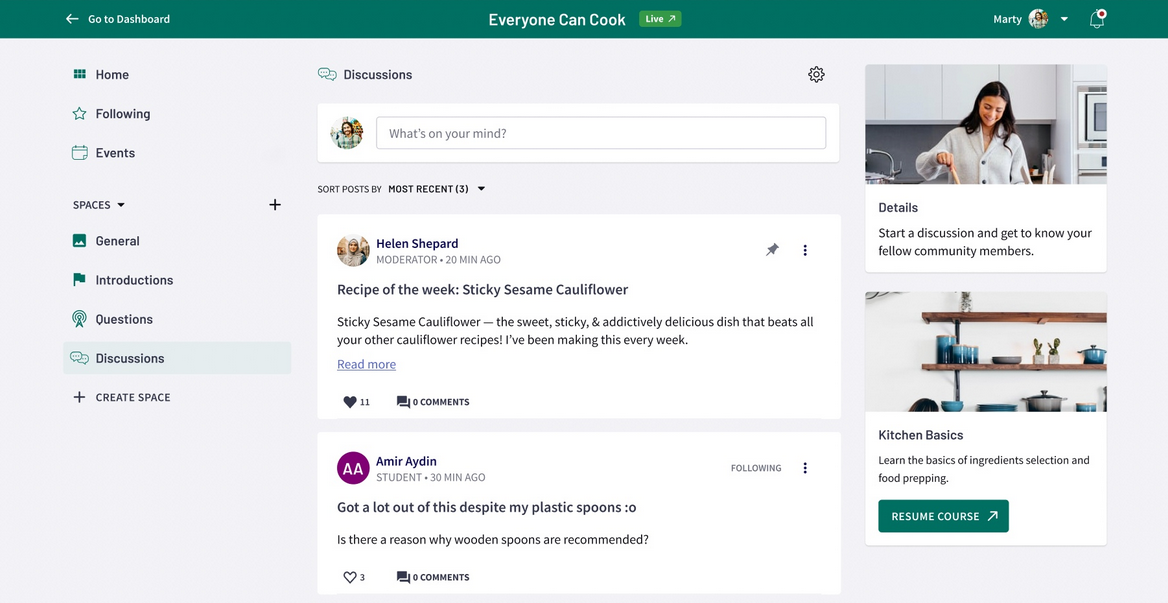
Thinkific also recently added mobile apps, but with an average rating of 2 stars (App Store) and 3.3 (Google Play) as of writing this, there could be some bugs to work out here still.
Thinkific Pros
Good course platform with drag-and-drop course editor & assessment features
Best for pre-recorded courses
Some marketing tools built-in
Thinkific Cons
Not as good for live courses
Basic community features
Users report problems with the apps
6. Udemy
Udemy is a course marketplace, and it's the best of the online teaching platforms to sell your courses alongside others. As we said above, marketplaces host thousands of courses that they either sell on a subscription model or by individual payment-per-course.
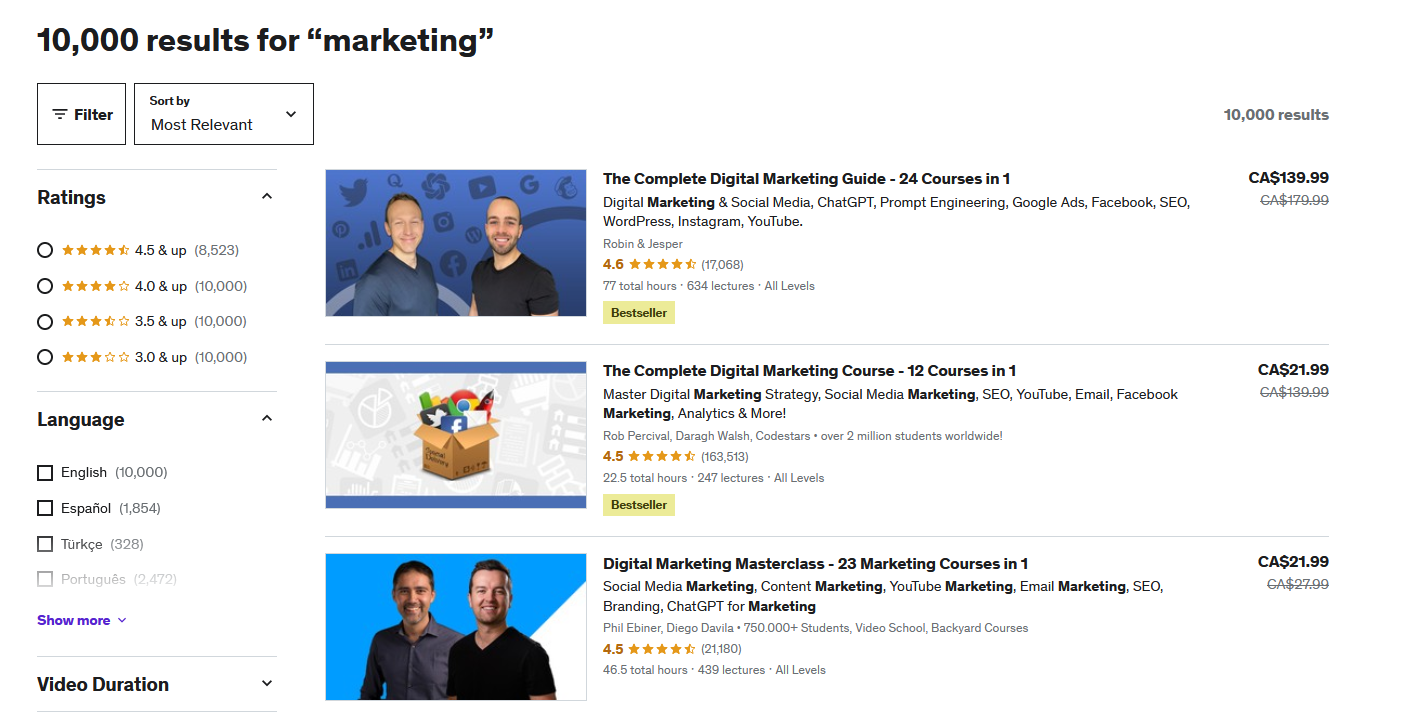
Udemy is the latter, making it a better value proposition for course instructors. With 210,000+ courses, Udemy gives you a solid course engine for building your course and has the basic engagement features you need. Udemy also has great apps that can even connect to a Chromecast or Apple TV.
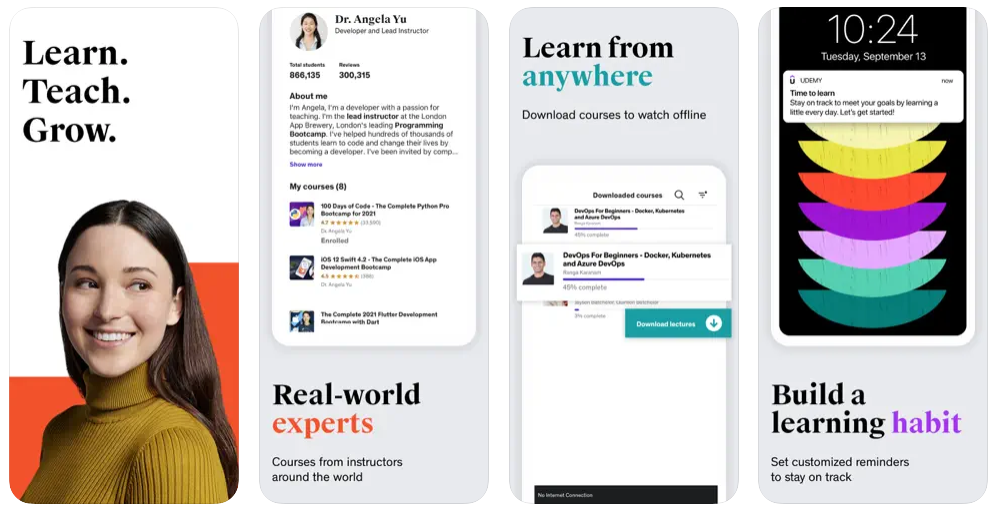
All marketplace platforms have ways of paying course creators; some are okay and some are terrible. You NEVER make as much on a marketplace platform as you'd make on your own.
But, for those determined to build on a marketplace platform, Udemy is a good option.
For students you bring to the platform through your links, you will keep 97% of the revenue.
For students who find your course via Udemy's search engine, you'll keep 37% of the revenue.
This is a LOT of revenue to give up. But theoretically these could be students you wouldn't have otherwise. So you'll have to figure out if you're willing to make the tradeoff.
For creators with existing followings and marketing savvy, Udemy probably isn't the right choice. For course instructors looking for an online teaching platform with a "set it and forget it" approach, it could be an option.
Remember:
Udemy has almost no personalization options. Your course needs to match their platform.
You don't own the relationship with students. These are Udemy's customers, not yours.
Udemy Pros
Good course platform
Course library where you can get seen
One of the better rev share models (for a course marketplace)
Udemy Cons
No real personalization
You don't own your relationship with members
Fighting with competition in Udemy's marketplace
Many creators earn less on marketplaces than on their own platform
7. Maven
Maven is an online teaching platform that specializes in cohort courses: courses with live instruction. For approved teachers, you get your course listed in their course directory of hand-picked, expert courses.
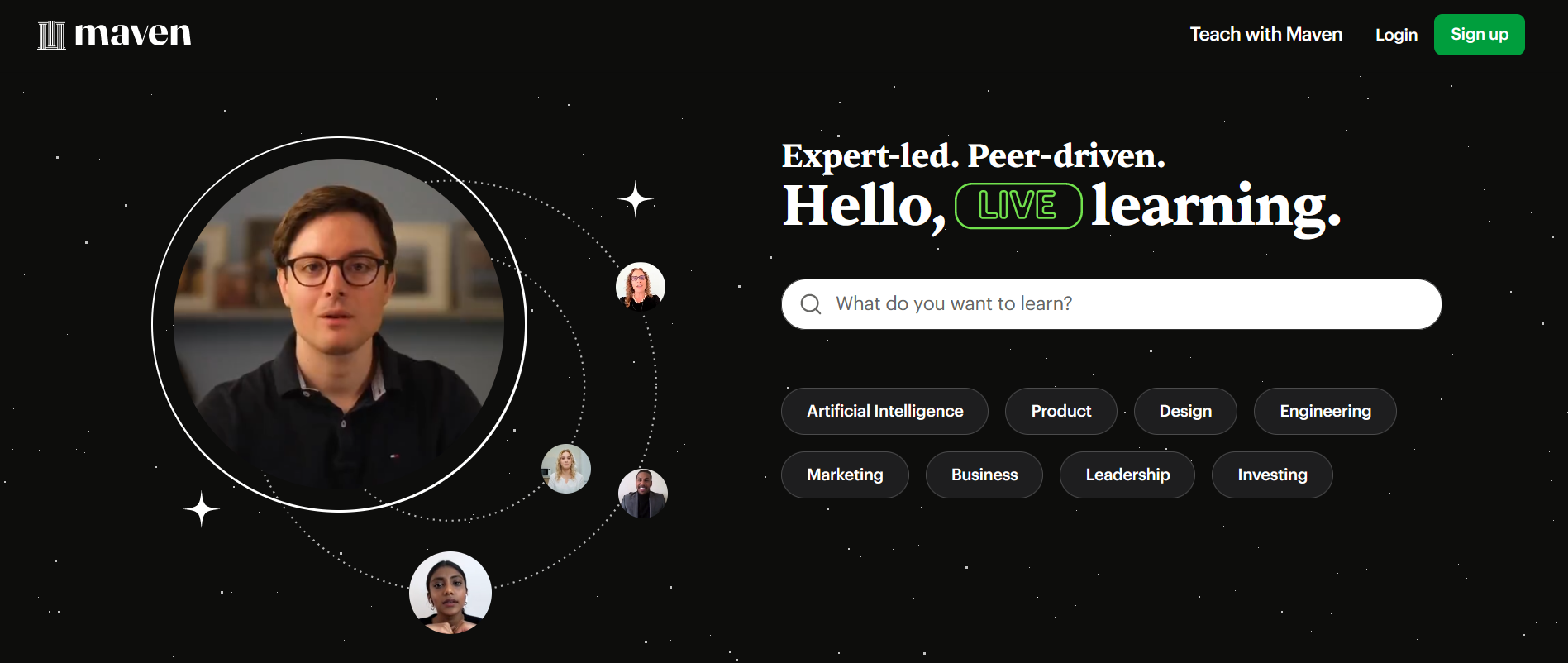
Maven's course platform gives instructors templates to build from, and comes with different training opportunities and a community of practice. And the platform includes landing pages for your courses and some marketing tools.
Maven's group of teachers is cultivated and hand-picked, so not just anyone can teach. There's an application on their website for would-be teachers to express their interest.
It's a cool concept and company, but it's important to remember that Maven is like any other course marketplace. By listing on Maven, you're building their brand.
Maven Pros
Excellent cohort course platform & brand
Lots of support if you get accepted
Maven Cons
Need to apply and be accepted.
You're building Maven's brand (not yours)
8. Skillshare
Skillshare is an online teaching platform for creatives looking for exposure via a marketplace. Although it's much smaller than Udemy, with 35,000 courses, it has a reputation for being strong on a certain type of course; it's best-known for art, design, and other creative skills.
Skillshare has a good course-building platform that gives you the tools to build a video course with assignments. And students can rate the courses and leave comments. Skillshare doesn't have much in terms of interactive tools, but it does have a neat feature where students can upload projects they're working on for each course.
Skillshare is probably one of the best online teaching marketplaces for students, who pay a flat fee and get access to everything. But it's not as good for teachers. The revenue share model means that Skillshare divides up the revenue each month between creators based on watch time. The result is an extremely-low revenue for most online teachers. And since you have no control over where your course shows up in Skillshare's library, there aren't many ways to get more eyes on your course. (Other than to do your own marketing, but then you might as well just teach on your own platform--you'll make more).
There are reasons to be on Skillshare--mostly for the exposure for creatives. But its poor payout structure moves it down this list, and there are plenty of better alternatives.
Skillshare Pros
Good course marketplace for creatives
Easy to build courses
Potentially find new members via the course library
Good apps
Skillshare Cons
Bad revenue-share model for teachers
No customization
You don't own the relationship with your members
9. Teachable
Teachable is a legacy online course builder that does one thing well: pre-recorded courses. It has a good course builder with a "power editor" for building and editing multimedia content, as well as a drag-and-drop site builder for courses.
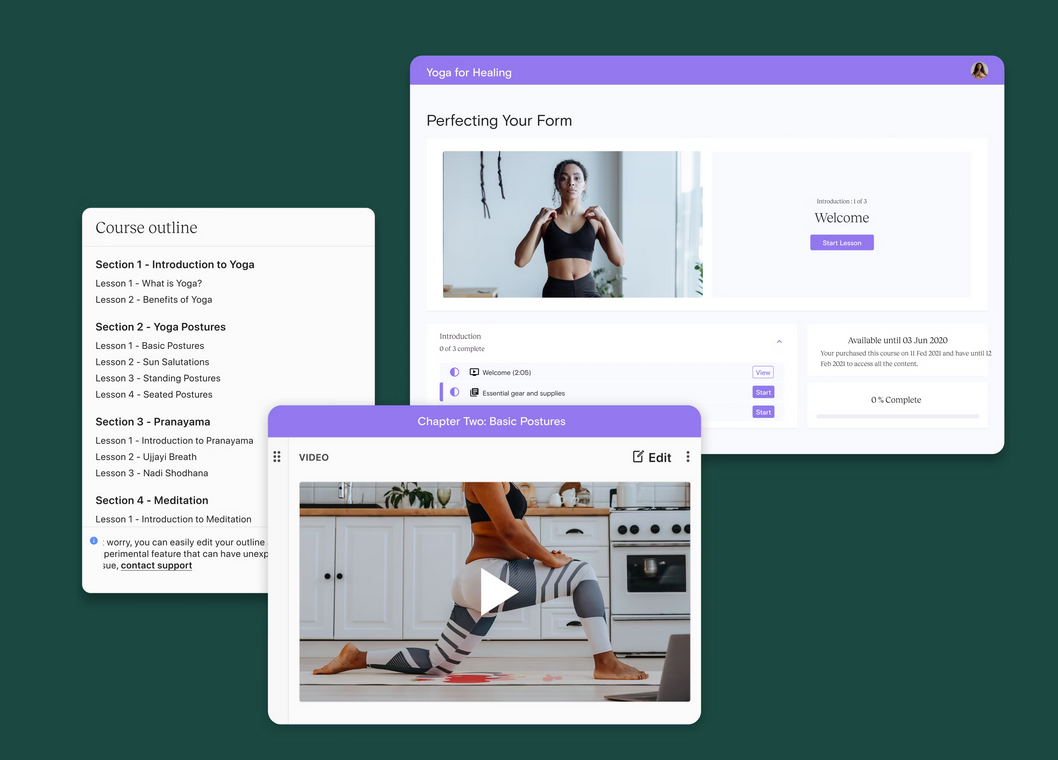
Teachable has some marketing features too, up- and down-sells, discounts, multi-currency checkout, and even an affiliate marketing program builder.
With Teachable, you can customize the course to have a look and feel that matches your brand, and you can customize landing and sales pages too. It also has a basic email tool built-in.

Teachable is not the right online teaching platform for a live or community course. It has no livestreaming, and is missing features a lot of other teaching platforms have: virtual events, community engagement, chat and messaging, etc.
Rather than build community features into Teachable, some of the founders went and started a separate community platform -- but it requires a separate purchase.
Teachable also DOES NOT have a native Android app, which means 70% of your students can't access your course on mobile. And finally, Teachable has a lot of complaints on review platforms about bad customer service.
Teachable Pros
Good course platform for asynchronous courses
Some decent marketing tools & an affiliate program
Customize the course and landing pages
Teachable Cons
No real engagement features
No Android app
Many customer service complaints on review platforms
10. LearnDash
For people who have WordPress sites who want to keep building on WordPress, LearnDash is one of the best online teaching platforms that works with it. LearnDash basically gives you a course editor that feels a lot like the Gutenberg editor, but with the option to create course content. It's also got a higher-level editor for adjusting course structure and different preferences.
LearnDash is functional, but a bit complicated. As with most WordPress plugins, it can require developer work to get your course to look the way you want it to. And the features are really simple; you're just getting a basic course.
It's missing community options, memberships, livestreaming, and the many, many other tools that make for a great online teaching platform.
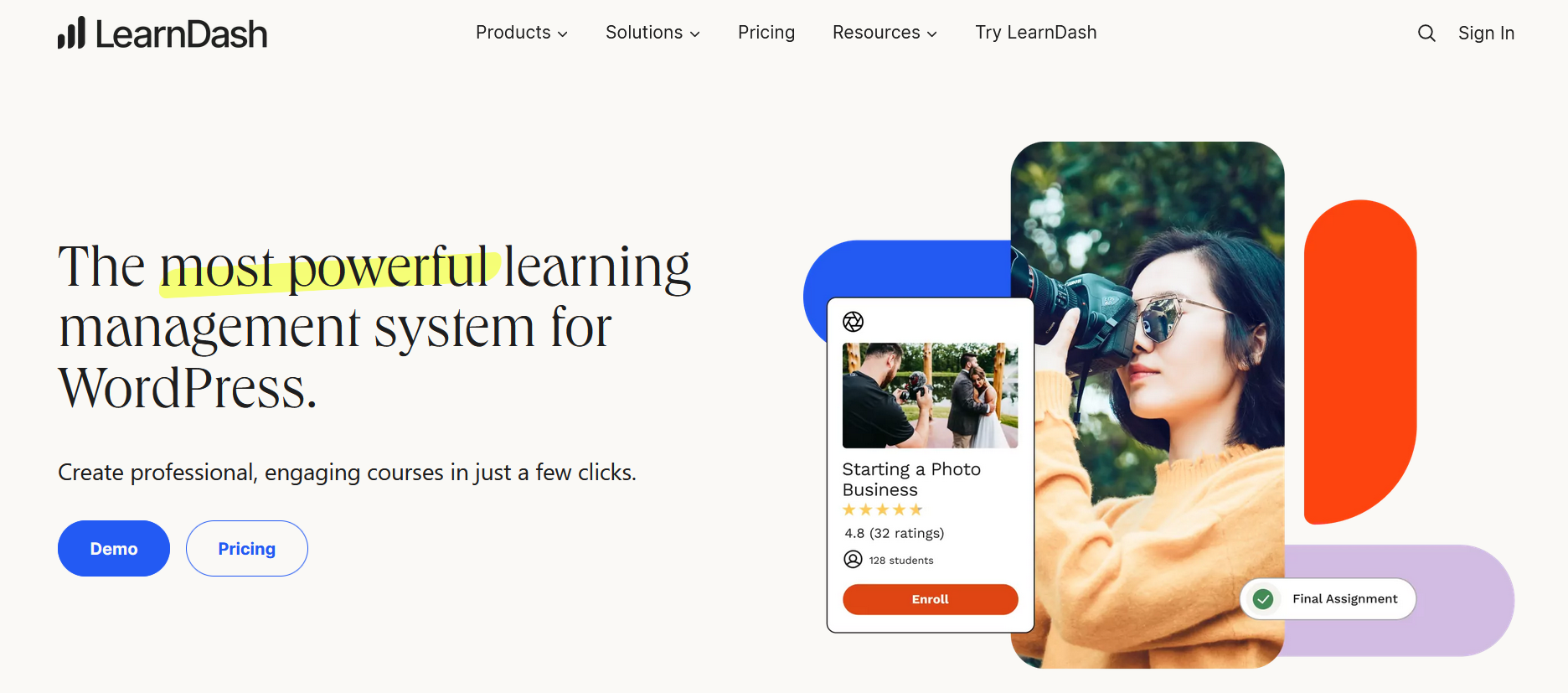
AND you'll need to mix it with another plugin for checkouts and sales--more on the below.
All in all, if you're dedicated to turning your WordPress site into an online teaching platform, LearnDash is a decent choice. But most creators would be better served by choosing one of the all-in-one platforms above.
LearnDash Pros
Turns WordPress into an LMS
Easy to build courses and customize the flow & features
LearnDash Cons
Needs customization to look and feel right
Needs more plugins to get a full feature set (e.g. payments, memberships, etc.)
It's really basic compared to the other online teaching platforms on this list
11. Memberful
For integrating an LMS like LearnDash to your WordPress site, you'll probably need a tool like Memberful. Memberful creates paywalls around content to help gate different parts of a WordPress site.
With Memberful, you can add membership and forum features to a WordPress site, getting it closer to the full feature set of one of the online teaching platforms above.
Memberful Pros
Integrates with LearnDash to create ways to sell your WordPress course
Can create memberships, profiles, and forums
Memberful Cons
Very basic compared to a proper online teaching platform
12. Podia
Podia is an online teaching platform that feels a bit like a Kajabi lite. It has an online course-builder, built-in email and marketing tools, and presets to create different types of products. It was built for coaches, so it also has an appointment calendar feature for setting up one-on-one coaching.
Podia can be used to sell courses, or to productize learning with things like webinars, audiobooks, digital downloads, or PDFs. You can also build marketing pages for your products.
Unfortunately, Podia has no mobile apps and the design is clean, but really basic. This bumps it to the bottom of this list of the best online teaching platforms.
Podia Pros
Functioning course platform
Integrated marketing and email tools
Good features for coaches
Podia Cons
Basic design
No mobile apps
Ready to start?
If you're ready to get started with online teaching, come build with Mighty. You can teach any kind of course you want, bringing content, community, commerce, and courses together.
Your brand is available anywhere across web, iOS, and Android apps. And you have more ways to monetize your content than anywhere else.
You can try it free for 14 days. No credit card required.
Ready to start building your community?
Start a free 14-day trial to explore Mighty—no credit card required.
More like this
Join Mighty Community
Learn the principles of Community Design™ (and see them in action) alongside thousands of creators and entrepreneurs. It's free to join!

Online Courses
Creating a Course
Teaching a Course
Course Platforms
Selling a Course
Communities & Memberships
Community Platforms
Managing a Community
Building a Community
Growing a Community
Monetizing a Community
Creators & Entrepreneurs
Monetization
Content Creation
Starting a Business
Website Builders
Creating & Managing a Website
Events
Event Platforms
Hosting & Marketing Events
Branded Apps
Creating a Mobile App
Coaching Apps
Community Apps
Coaching
Mastermind Groups
Starting a Coaching Business
Coaching Platforms
Filter by Category
Online Courses
Communities & Memberships
Creators & Entrepreneurs
Events
Branded Apps
Coaching
Start your free trial
14 Days. No Credit Card Required.



















